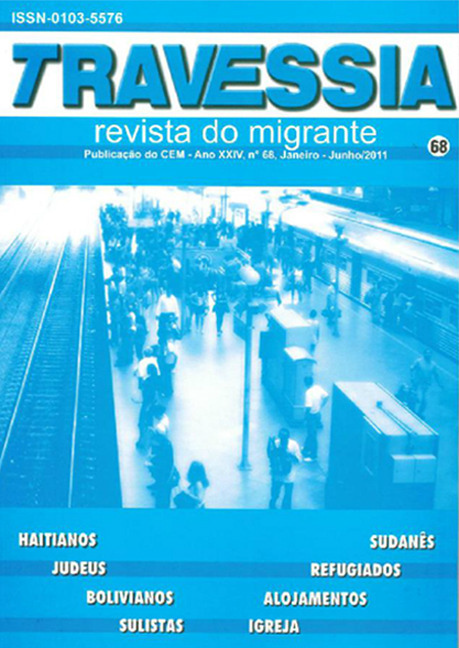Migração, Transfomações Sociais e Reforma Eclesial Pastoral jesuítica e scalabriniana no Brasil da Primeira República
DOI:
https://doi.org/10.48213/travessia.i68.495Keywords:
religion, immigration, religious ordersAbstract
This article represents the first part of an in fieri research which roughly extends chronologically from the First Brazilian Republic to World War I, overlapping with the pontificates of Leo XIII and Pius X. The end of slavery, the beginning of immigration and the Republic bring a profound process of reorganization and restructuring of the Catholic Church, with the arrival of foreigners who change the social, cultural and religious landscape, and the building of a new ecclesiastical reality. The introduction of religious traditions of immigrants introduces new pastoral demands emanating from this host of new believers and their needs in terms of religious and material assistance, drawing attention and debate to the Catholic church. Missions were organized according to a linguistic principle, and the evangelization was carried out in the language of the immigrants, which stimulated the strengthening of national identities, customs and traditions that were typical of their homelands. Jesuits, Scalabrinians and Cappuccinos were the first and the most active in this type of mission.


